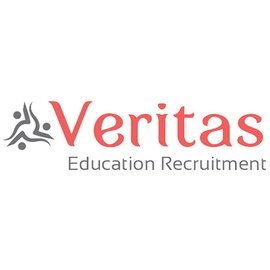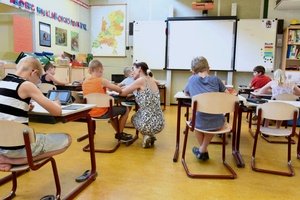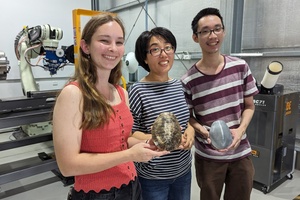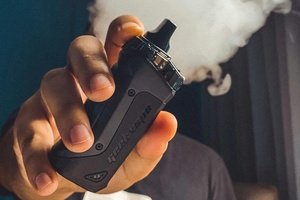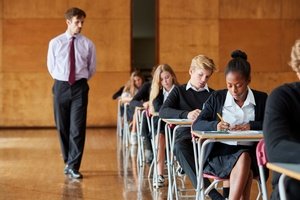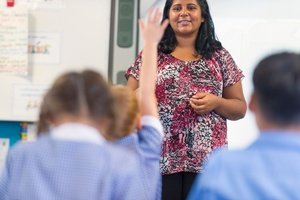In a new paper for libertarian think tank The Centre for Independent Studies, Rebecca Birch lays down a case for why the teaching standards currently function as a ‘blank canvas’ when it comes to defining best practice, inviting a host of unhelpful interpretations from initial teacher education (ITE) and PD providers.
“I think they read like a bit of a shopping list, rather than the setting of a standard,” Birch, director of research and practice at a K-12 independent school in Sydney, tells EducationHQ.
Over the years Birch has worked her way up the accreditation system and has supported others in navigating the professional standards, too.
She says it’s become abundantly clear “how lacking in quality of detail they are”.
“So really, you can ascribe any ideology, any philosophy onto the standards, and the standards don’t push back on that in any way.”
And while they might successfully capture the breadth of a teachers’ role, Birch says as far as informing professional learning or ITE coursework goes, the standards aren’t very useful at all.
“And that has big knock-on effects for things like initial teacher education, where institutions can choose where to place their emphasis, they can choose to [focus on] some of those redundancies … for example, on differentiation.
“I think they were written for a different time when I don’t think the evidence about teaching and learning was as well known or accepted,” she adds.
Birch proposes the standards be changed to better align with best practice and to ensure they don’t pose a barrier to the positive ITE reform underway following the Teacher Education Expert Panel (TEEP) review last year.
“I think the [TEEP review] has been a big shift in policy,” Birch says,
"They’ve kind of put their stake in the ground and said, ‘no, we know about best practice, we’re not going to ignore it any longer. We’re going to hang our hat on it’.
“But then when you look at the standards, you think ‘they’re not conducive to actually making this happen’.”
For example, where the core content of TEEP’s Strong Beginnings report rightly draws on robust research that shows human cognitive processes are largely the same, the corresponding section of the Standards stresses teacher differentiation and suggests that the learning needs of various student groups are different.
“…I think it is a widely accepted interpretation that we have to actually create different work with students with a disability,” Birch adds.
“The standards go even further, by naming different economic groups as learning differently, which we know is not the case.
“It’s almost discriminatory to say that students who are disadvantaged or are from different cultures actually learn differently, when we know from cognitive science that learners have more similarities than differences.”
Birch would like to see responsive teaching highlighted in the standards.
“What it means is that you have high ambition for everyone, and high support. So, it’s very different to an emphasis on (needing to create) different work.
“So, (the standards should have) less emphasis on differentiation and more emphasis on being responsive to students’ needs, which I think is a different sort of philosophical standpoint as well…”
Birch recommends:
- Amending the standards to reflect the Strong Beginnings’ core content, removing focus areas and integrating supporting documentation about exactly what teachers need to know and be able to do;
- Conducting ‘factor and value-added analysis’ of any new standards as part of their development to ensure validity and rigour, and;
- Developing national guidelines for professional learning, including case studies of effective use of staffing and funding allocations.
Professional development also ought to be aligned to new standards to better bolster teaching quality across all career stages, Birch suggests.
“At the moment, there’s no imperative to make professional learning aligned with evidence, because the standards don’t force anyone to do that – they just allow a lot of choice, when we know that some practices actually do work better for students than others,” she explains.
Birch hopes her paper will prompt a review of the standards in consultation with teachers to find out whether they are indeed fit for purpose.
“Because anecdotally, when I tell people about the paper, they say ‘thank God, it’s about time’.
“I would like to see an attempt to validate them, so that we’re measuring the things we say we’re measuring, and that those things we’re measuring contribute in some way to student outcomes,” Birch says.
Last year EducationHQ covered a call for the standards to include personal attributes such as motivation and resilience, with one NSW teacher saying they needed to better prepare aspiring educators for the harsh realities of the job.
Steven Teng concluded the standards were reductive, in that they presented only a ‘tick box’ checklist of epistemological skills that covered required knowledge and content.
Teng said soft skills, including interpersonal skills, motivation, self-efficacy, resilience and adaptability should be added to ensure those entering the profession are buffered against burnout and have a more holistic toolkit to succeed long-term in schools.
Meanwhile, Birch says some schools, such as Yates Avenue Public School in NSW, are not waiting around for the standards to change and are instead defining and meeting their own.
“My key point with that section (of the paper) was ‘we don't have to wait’,” she says.
“But wouldn’t it be nice if we had a set of standards that supported what we’re doing?”




